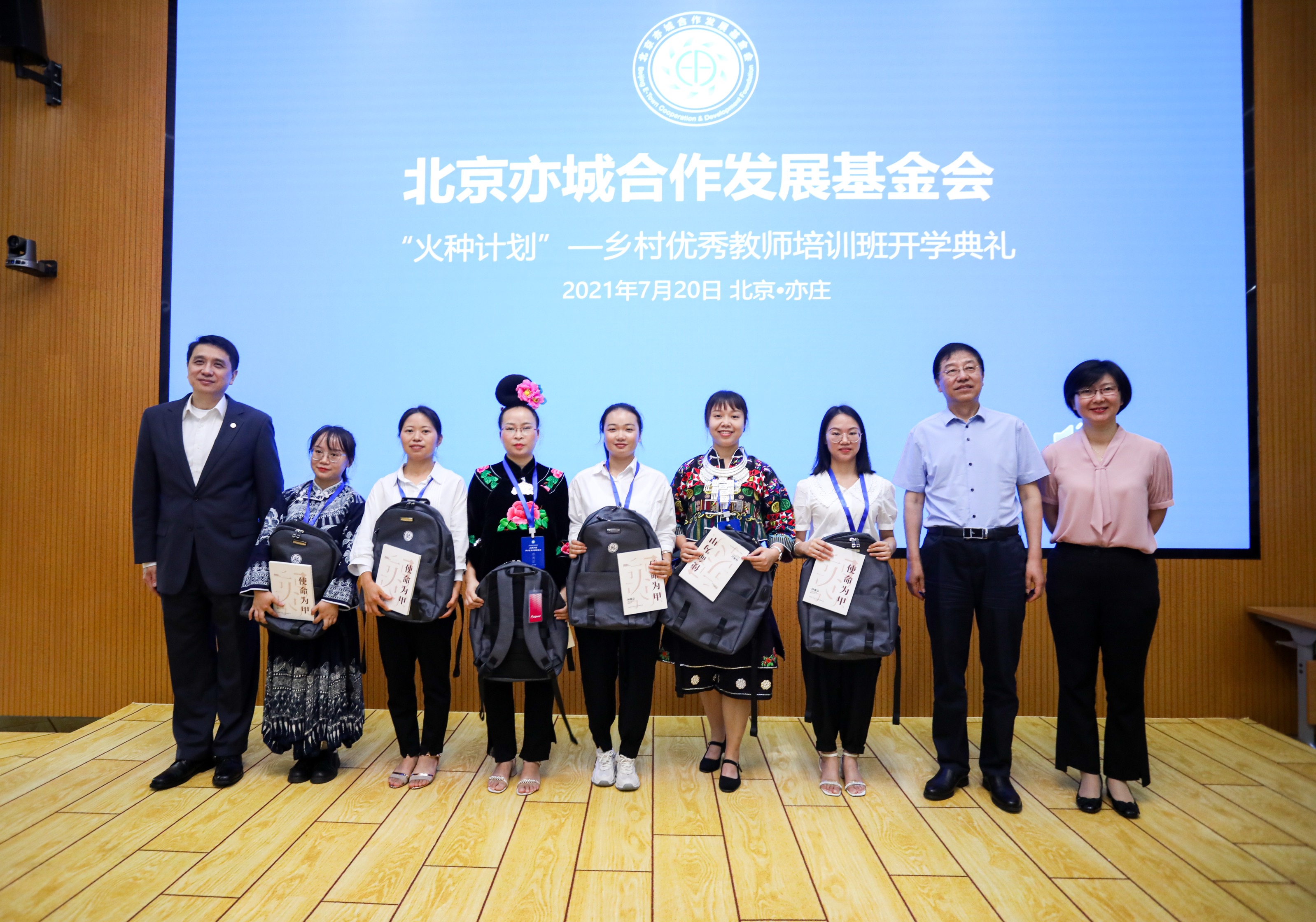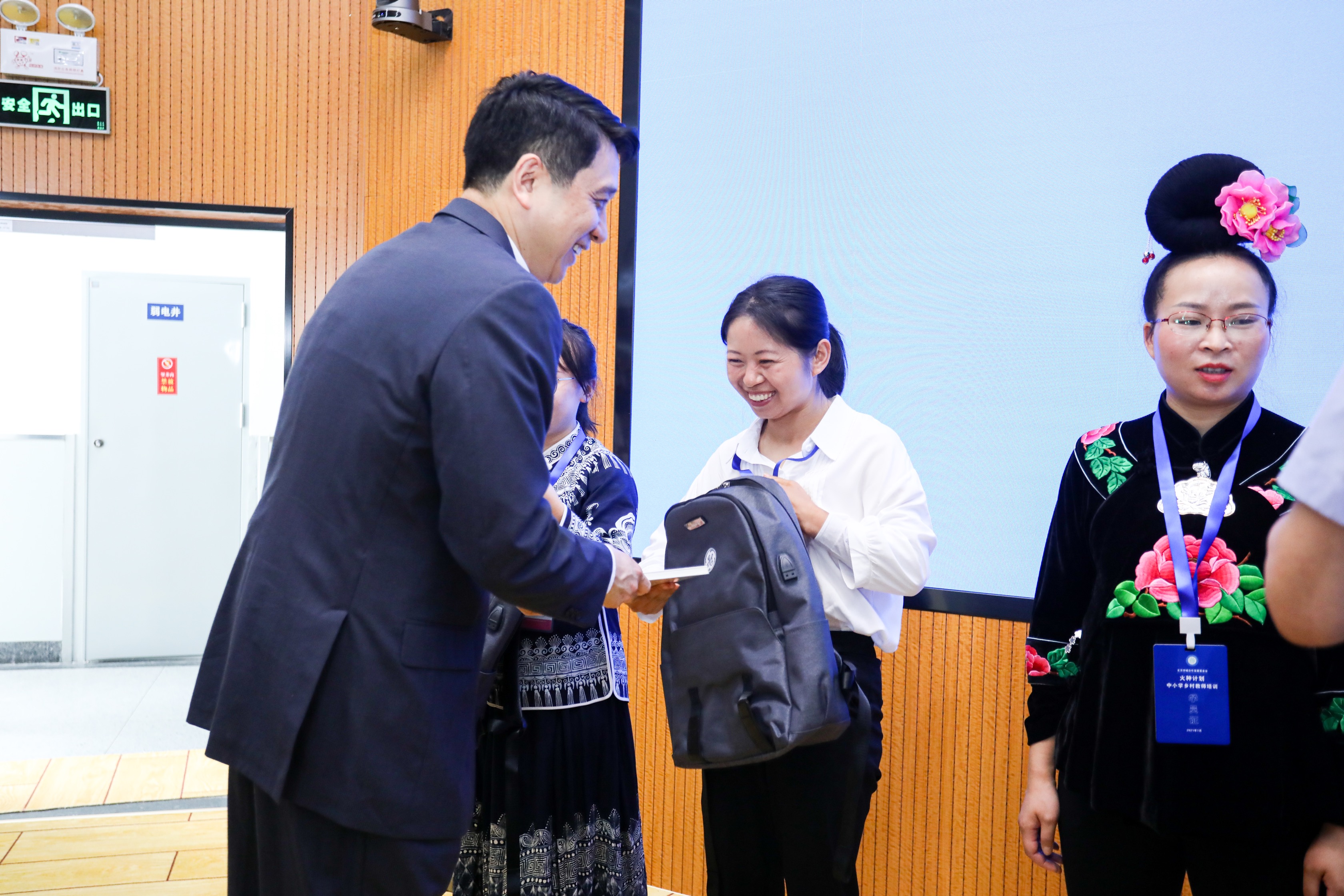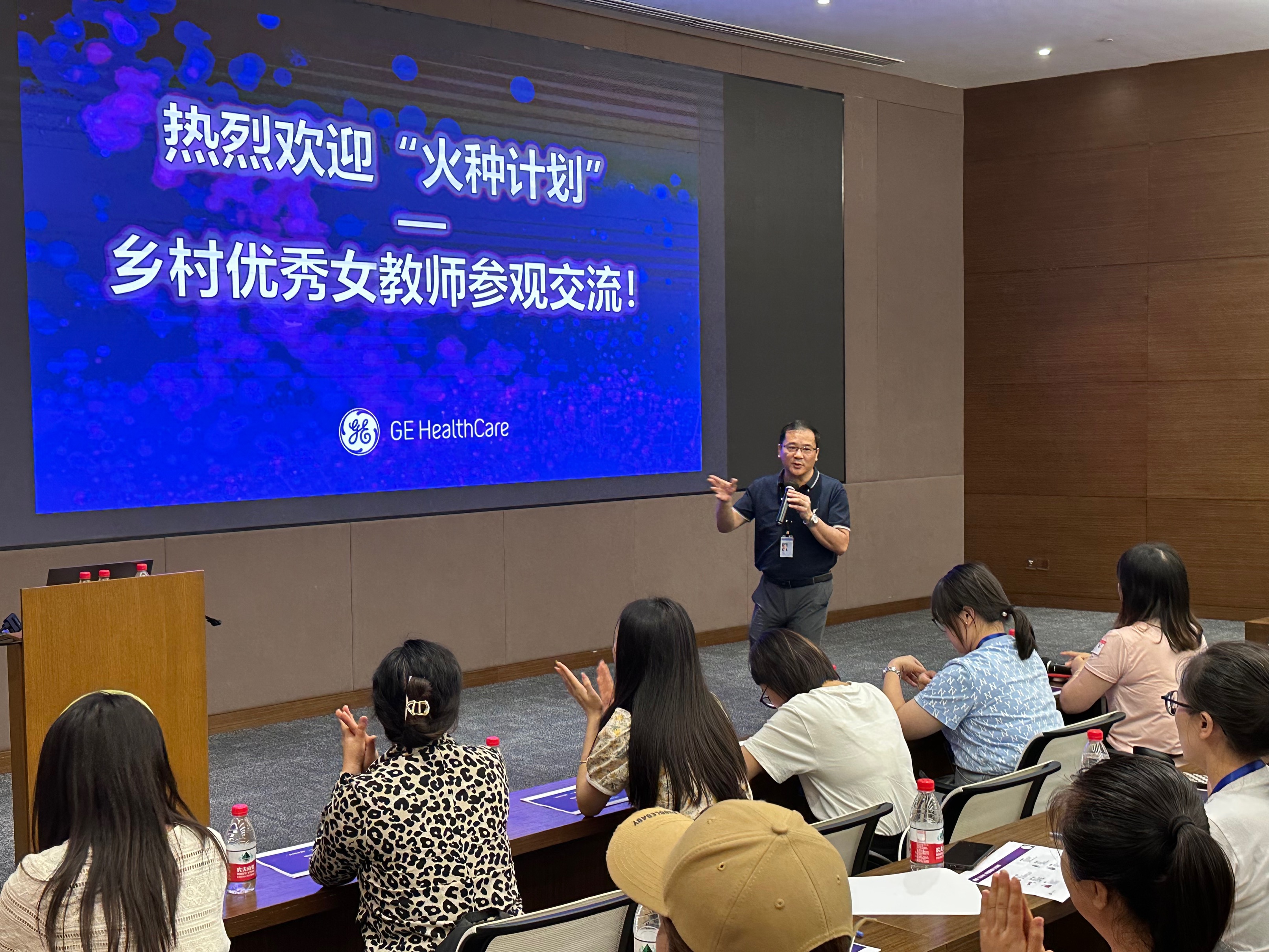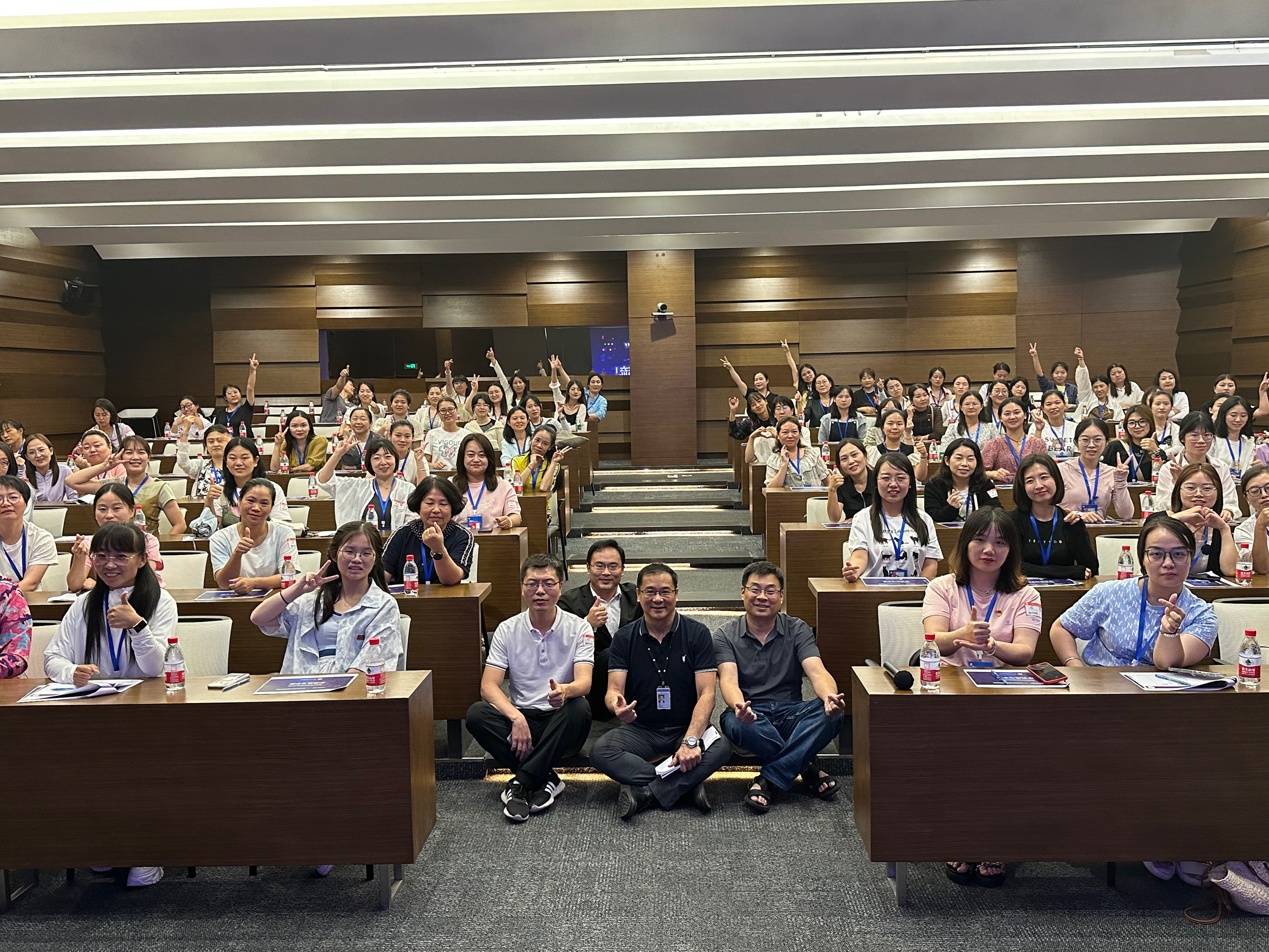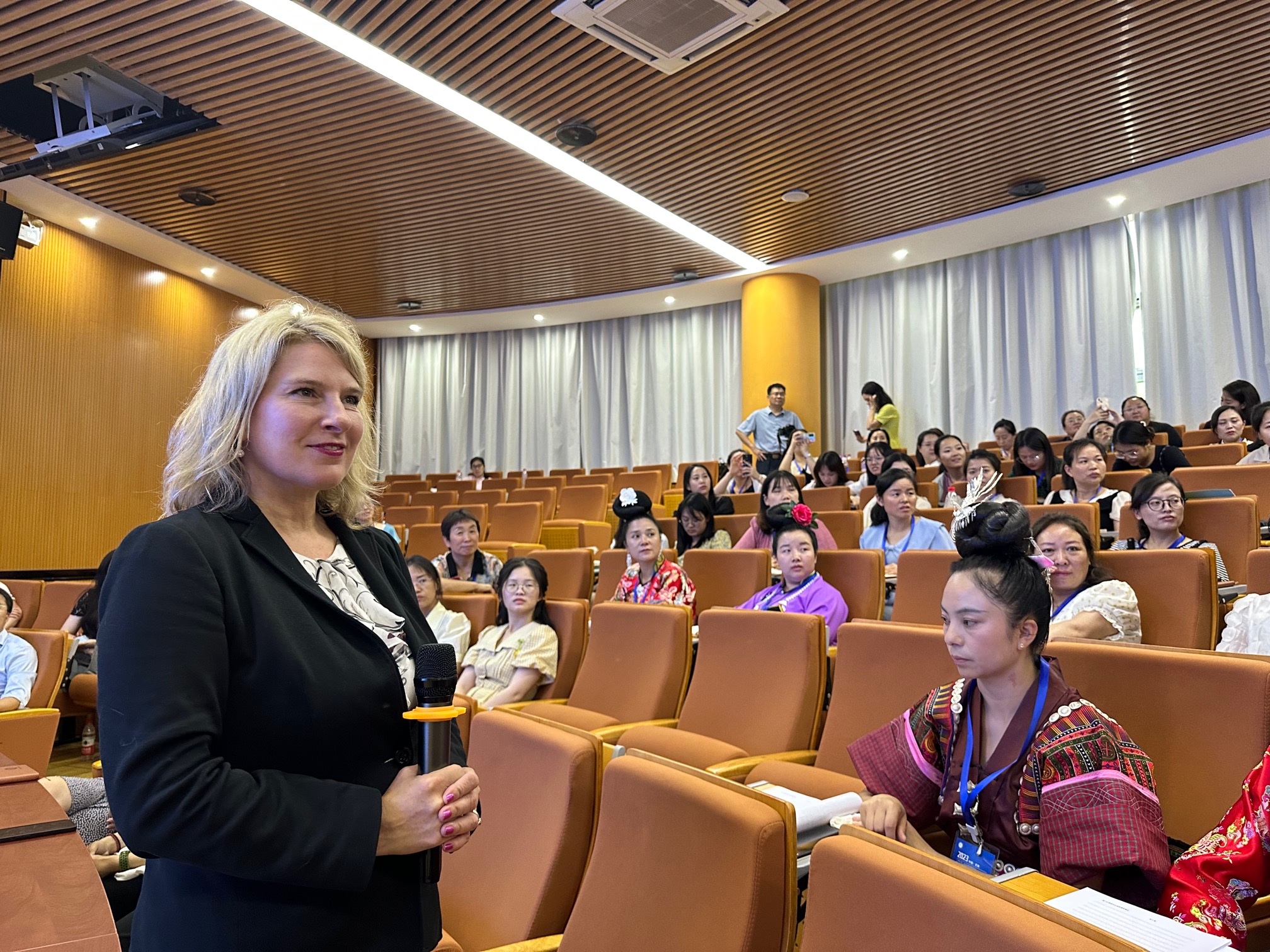Yan Yao Ling is a teacher at Da Chuan School, which is nestled in China’s Wudang Mountains, an area famous for the practice of spiritual martial art, Tai chi, and the meditative philosophy of Taoism. But Ling doesn’t have much time for calm and contemplation. On any given day, she might be teaching English to primary school grades, reviewing the homework of middle school students, and compiling a performance report for administrators.
But Yao Ling returned to school after this year’s summer break with a spring in her step. She’s just completed the latest Kindling Program, a philanthropic initiative jointly founded by GE HealthCare in 2003 to upskill female teachers in remote areas of China, and revitalize rural education. Yao Ling, along with 105 other female teachers from every corner of rural China, attended a 10-day course in Beijing where they heard lectures about the latest scientific and technological developments, visited robot-powered manufacturing facilities, and received training on women’s physical and mental health.
Yao Ling couldn’t wait to share what she had learned about the transformative potential of Artificial Intelligence (AI), the importance of a low-carbon lifestyle, and the key to successful teamwork with Da Chuan’s teachers and students at school, back in September. In fact, Yao Ling feels like she’s experienced something of an epiphany. “I had a feeling during the training like I’d lost something precious and finally got it back,” she says. “I know these experiences can improve the rural education environment and cultivate more high-quality teachers for the countryside,” she adds.
Rural health focus
GE HealthCare has always had a strong commitment to rural healthcare in China. Its joint venture (JV) with Sinopharm-CMDC, designs and manufactures medical equipment that help to widen healthcare access and improve outcomes in remote areas. It has made notable advances in primary care, the day-to-day healthcare provided by China’s rural physicians. In 2021, it launched Primary Care Action with People’s Daily Online, which has since carried out more than 100 training sessions to more than 18,000 rural doctors.
Innovative solutions are exactly what China’s rural regions need. Even though Chinese people are migrating in their droves to cities in search of economic opportunity, approximately 36% of the country’s population, or around 500 million people, still live in rural villages. Access to sanitation, transportation and healthcare remains a challenge in these sparsely populated regions. For example, there are around two physicians per 1,000 people in China’s rural areas, compared to four per 1,000 in urban areas.
“Our healthcare resources are not spread equitably,” says Young Chen, General Manager of GE HealthCare China Supply Chains, who oversees the Kindling Program. “It’s fantastic here in Beijing, where we have a world-class healthcare system, but it’s a totally different landscape just a few hundred kilometers away.”
There’s also a marked disparity between the city and the countryside in education. China’s rural schools are severely understaffed, with many institutions consisting of a single teacher presiding over all the classes. Local authorities often struggle to retain teachers, who are predominantly female, after they have children. “They’ll start their career very young, then get married, have a family, and don’t return to work,” says Young.
Yihao Zhan, President & CEO GE HealthCare China with the teachers
In 2003, GE HealthCare leaders decided to tap the company’s rural know-how to tackle these various issues. “People look at big industrial companies like us, and say ‘oh you’re a businessman, you just make money’, but we wanted to show how we can have a positive influence in the communities we serve,” says Young.
Lighting a flame
Together with the Beijing YiChuang Rural Women’s Philanthropic Development Center, they founded the Kindling Program. (Young explains the philosophy: Knowledge can spread like wildfire, it just needs a spark.) Upskilling China’s cohorts of rural female teachers lights the match. A fire smolders as teachers pass on their knowledge, skills, and experiences to entire schools of Chinese children. It’s not long before the flames of knowledge spread to the rural communities themselves. Young estimates that the 1,000 teachers who have participated in the Kindling course since 2003 have passed on their skills and knowledge to more than 800,000 children in their communities.
In keeping with the previous 19 years, GE HealthCare liaised with local authorities all over China to select course participants. “Our starting criteria are very simple,” says Young. “One, a teacher. Two, a female. Three, from rural area, with an emphasis on western China”. Together with their partners, they ended up selecting 106 participants from 15 of China’s provinces and autonomous regions, including Inner Mongolia, Anhui, Guangxi, Sichuan, and Guizhou.
Young Chen delivering the welcome speech during this year's Kindling program
The course centered around an auditorium in Beijing, where participants heard lectures from distinguished academics on modern healthcare approaches, Chinese classical studies, and macroeconomics. But there were plenty of excursions into Beijing, including visits to the offices of ecommerce giant JD.com and the Chinese base of Coca-Cola. One highlight was a trip to the Beijing Imaging Equipment Manufacturing Base, one of GE HealthCare’s largest manufacturing hubs anywhere in the world. “Some of the teachers have never seen modern manufacturing or production facilities before, so experiencing things like robot process automation really opens their eyes.”
One participant, Li Wei, who teaches Chinese and Art at Yunshan Primary School in a remote area of Sichuan Province, says that the trip helped her to understand how technologies such as precision medicine, telemedicine, and AI can improve patient access and outcomes in rural regions. “The development of a region is inseparable from good medical equipment and responsible medical personnel,” she says.
2023 Kindling program group photo
Realizing of the power of digital technology has changed her mindset, which will transform her teaching methods. “When I go back to school, I want to tell my students about the importance of AI,” she adds. “Instead of reading thick books, students can gain knowledge via digital methods, and they would learn it even faster.”
Eye-opening
These eye-opening moments stay with teachers, helping to elevate their career ambitions and prospects, says Young. “Many teachers have been promoted to Dean and Principal positions after the program,” he explains. “We even had one promotion to Deputy Head of the region’s education bureau.” Over the longer-term, the hope is that the Kindling Program and similar initiatives will boost all-important retention rates.
More benefits will come as teachers start paying their learning forward. Young says that the knowledge transfer doesn’t just inform school children, but inspires them with a sense of purpose and possibility. “Children have something to aim for, so they begin to understand why they’re studying and enjoy school,” he explains.
“The Kindling Program nurtures top female talent and equips them to pass on learnings and opportunities to the next generation. It is an important reflection of GE HealthCare's culture of diversity, equality, and inclusiveness,” says Carrie Uhl, Chief Procurement Officer at GE HealthCare and Executive Sponsor of the Global Women’s Network at GE HealthCare. “We have always emphasized gender equality and women's career development both globally and in China, aiming to create a women-friendly environment and contributing to personal and professional growth so all women feel inspired, energized and accomplished.”
Carrie Uhl during her intervention with Chinese teachers.
The course has left its impression on Li Wei, the teacher from Sichuan Province. “Before, I was like a frog at the bottom of the well,” she says. “I finally had a chance to jump out of the well and visit the capital city of neon lights for the first time.”

